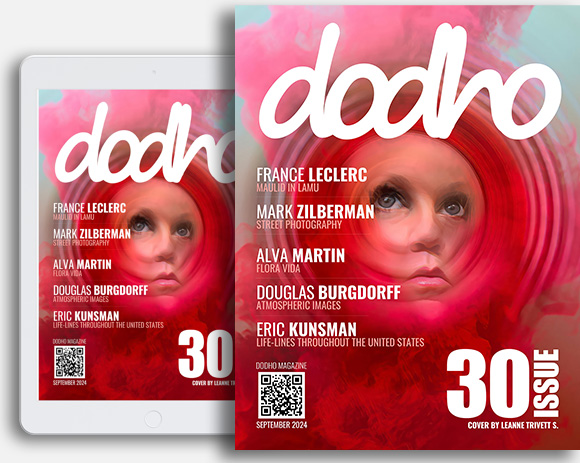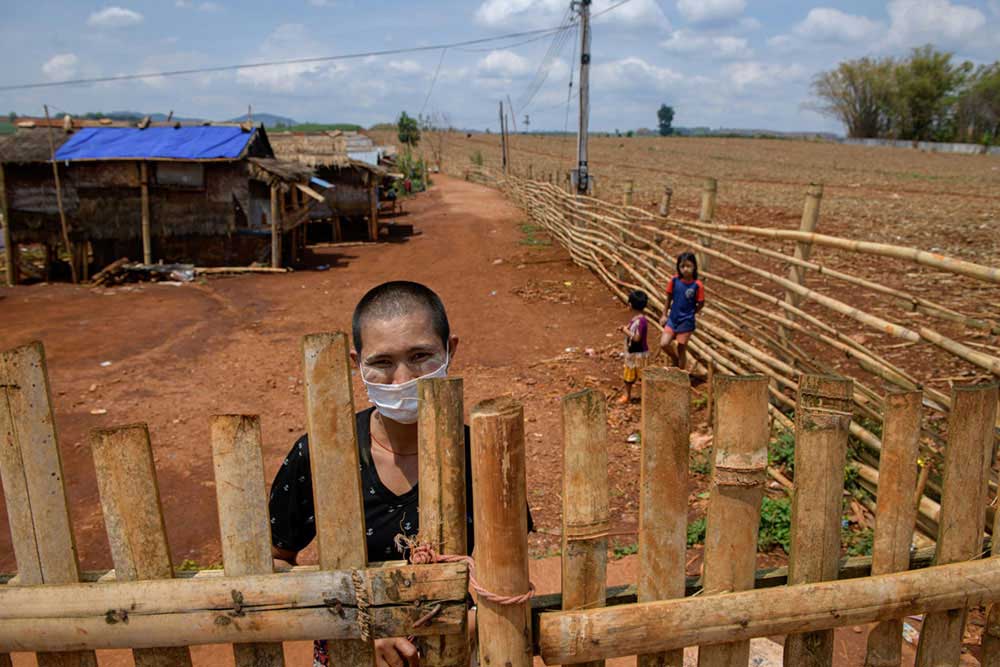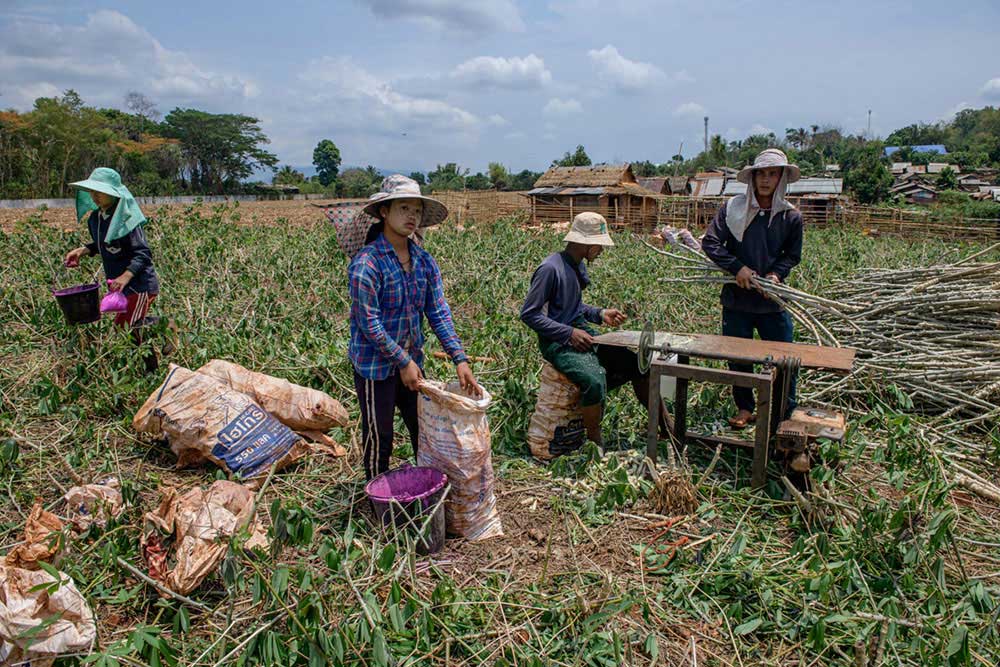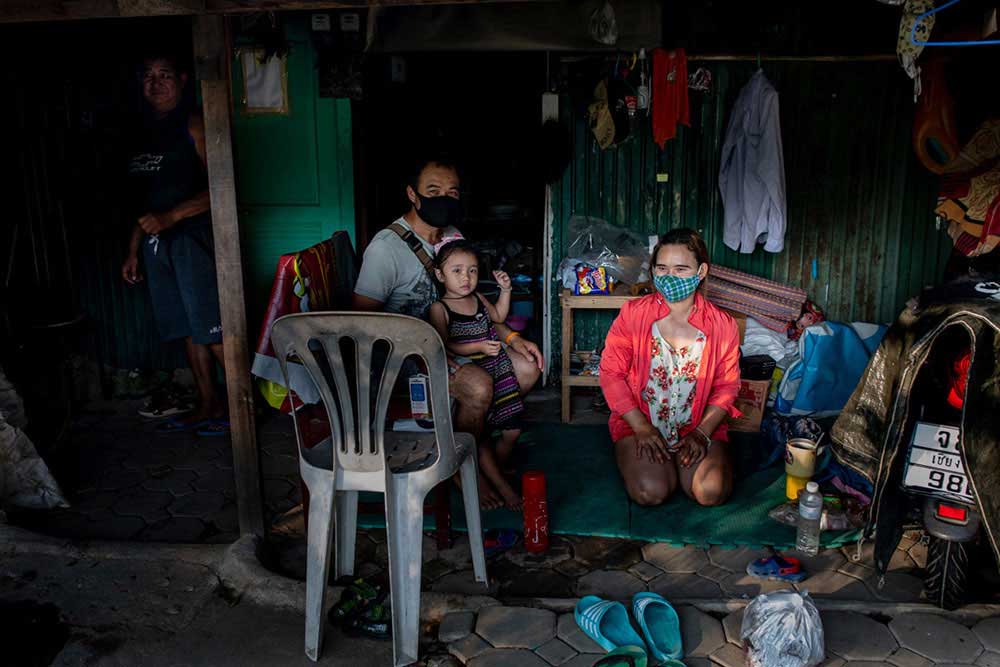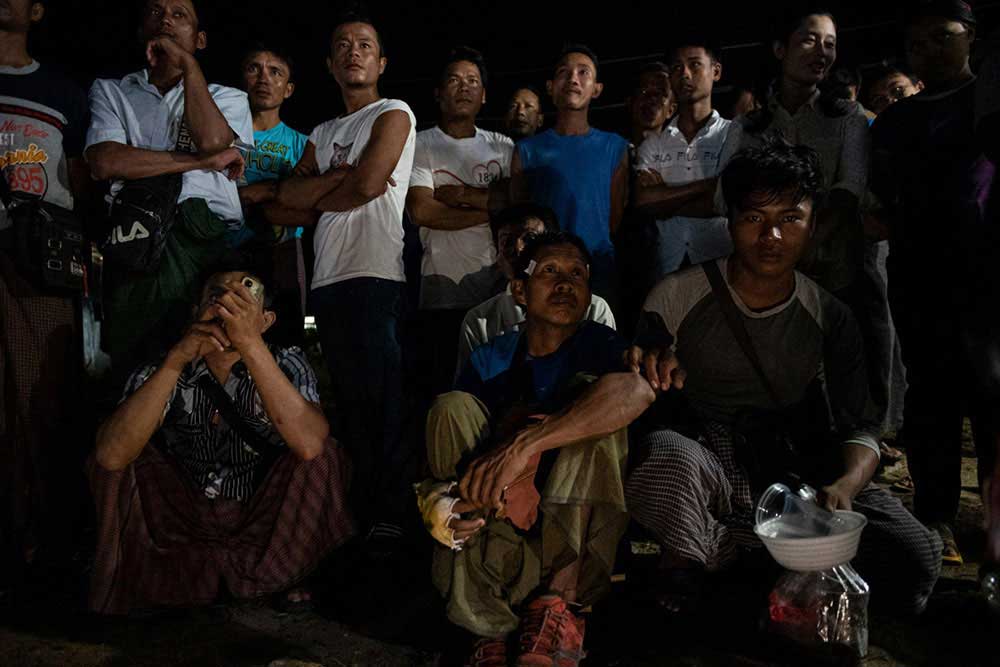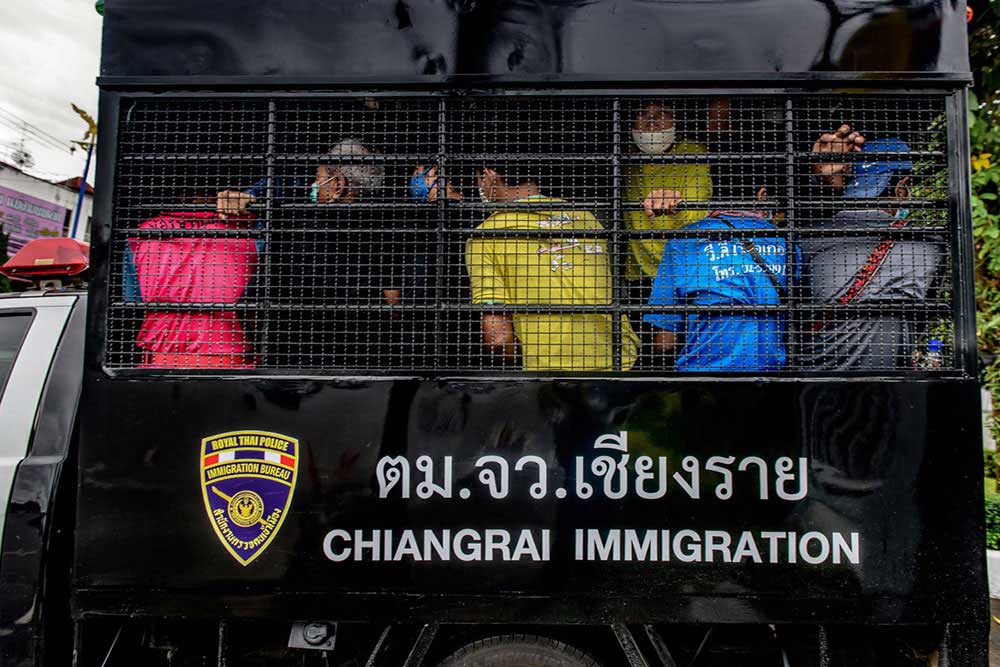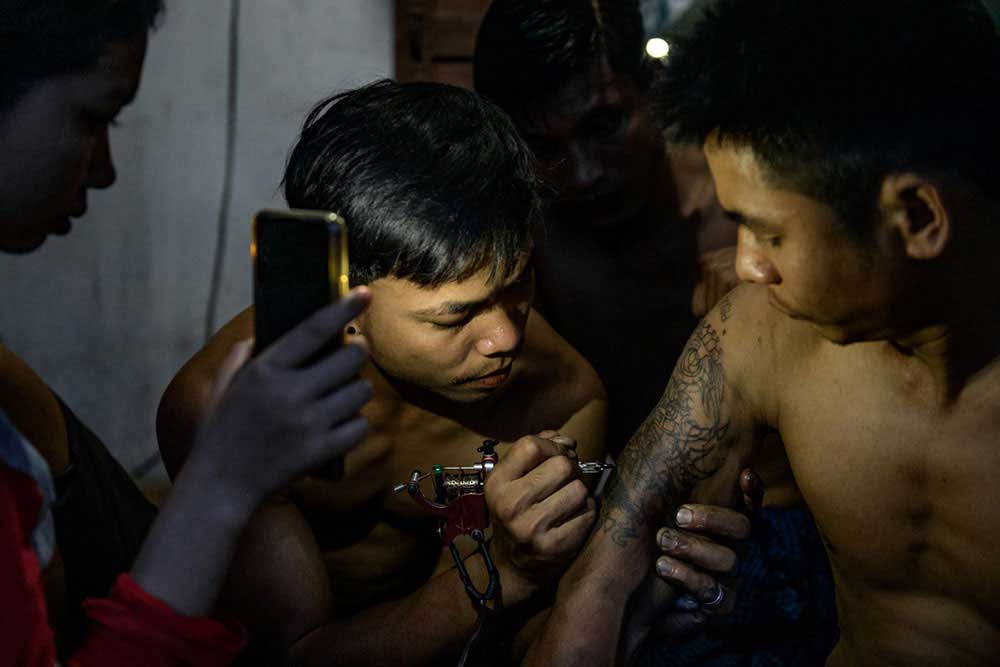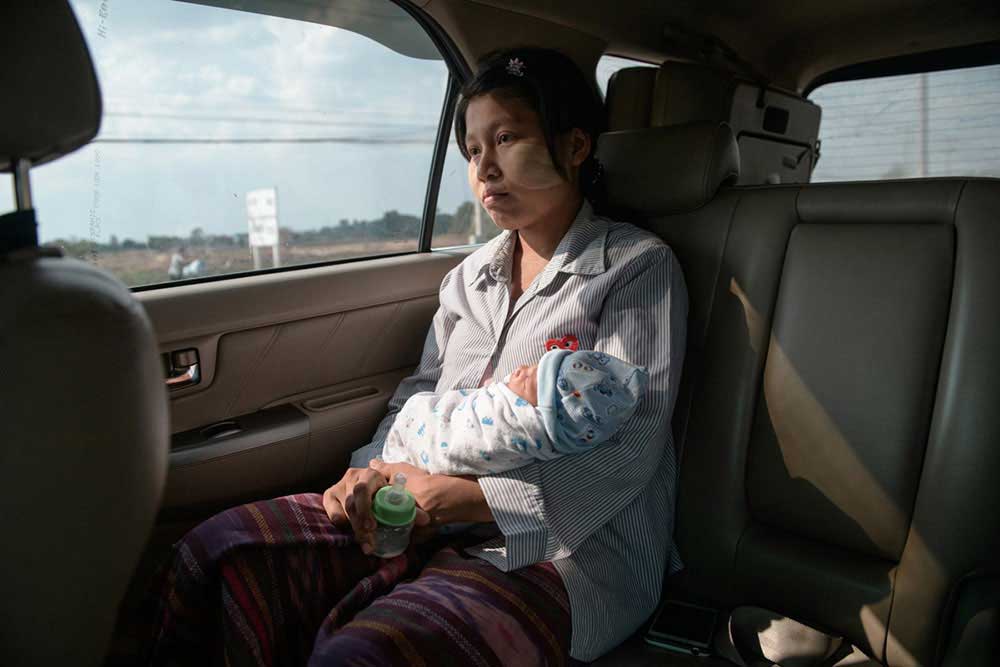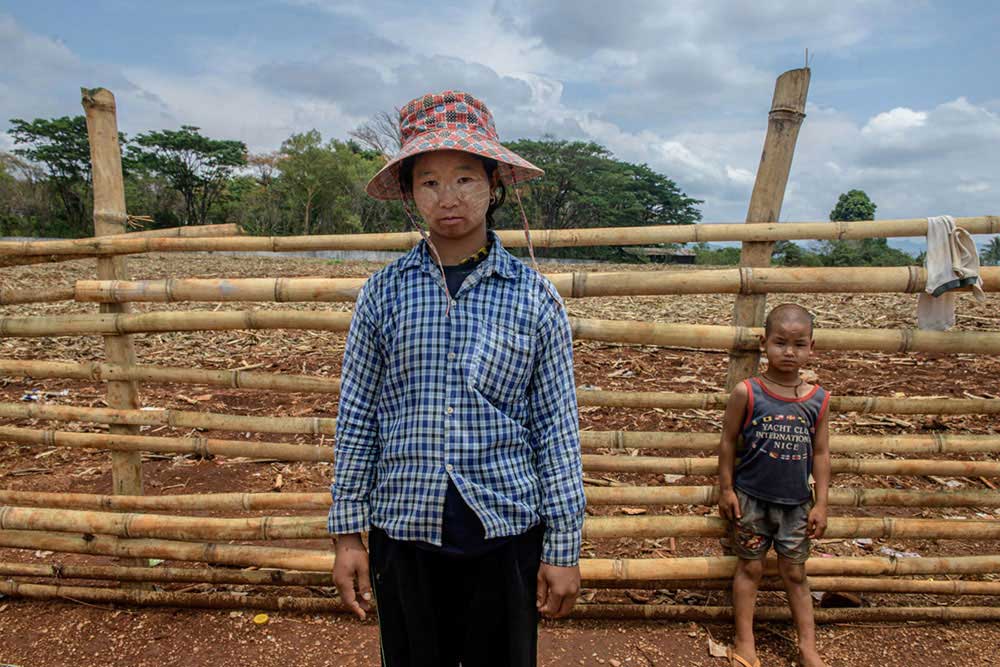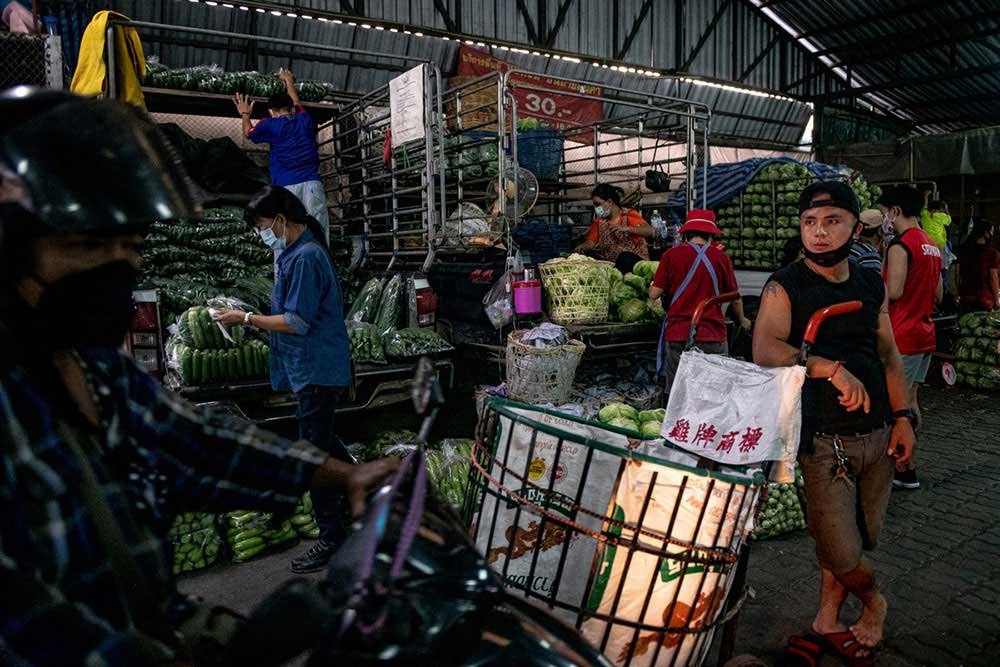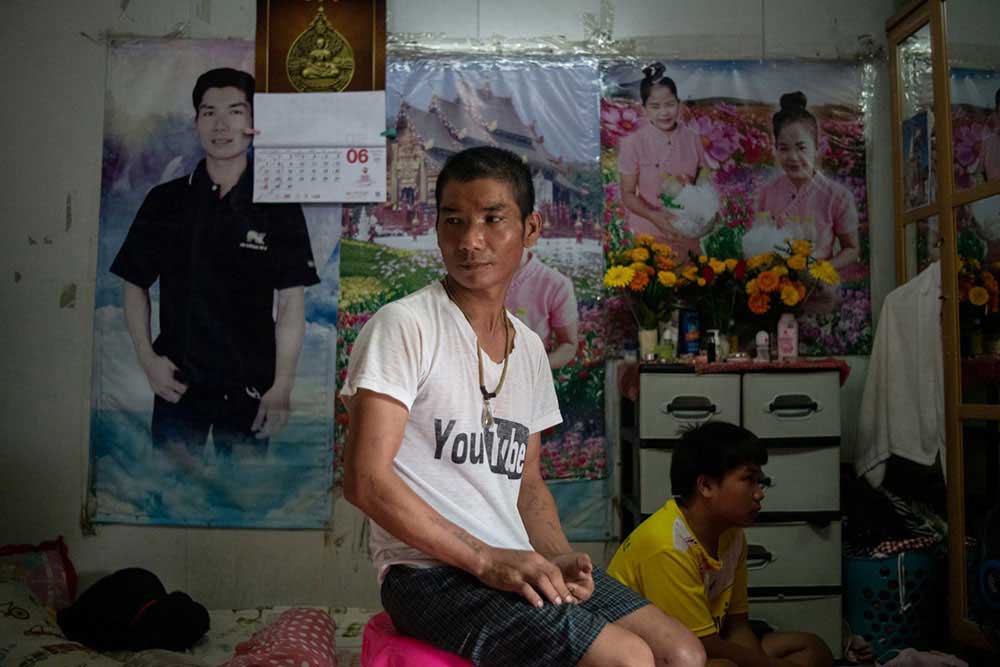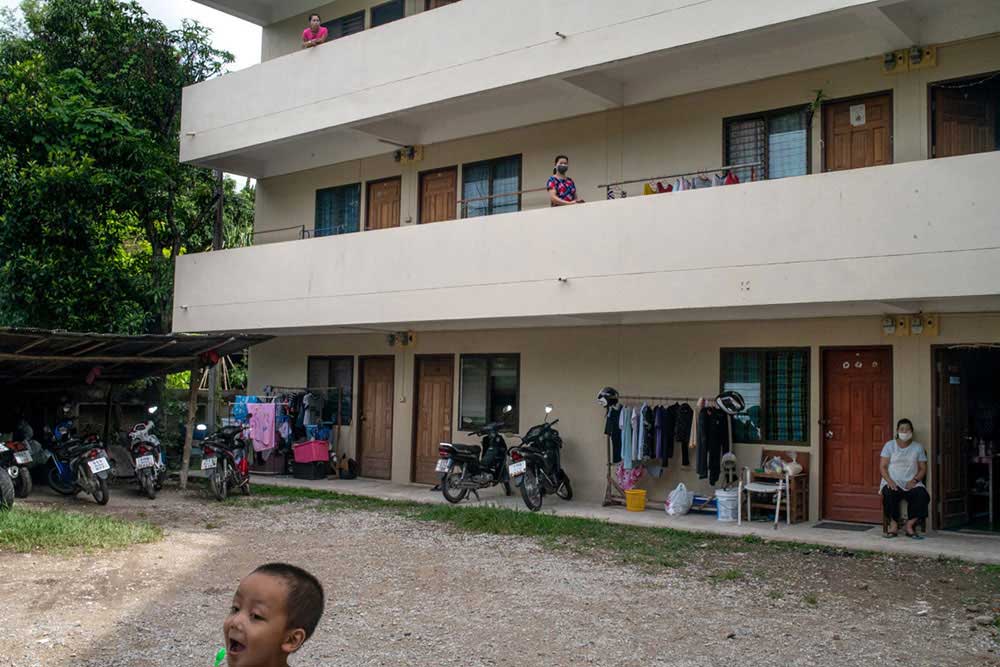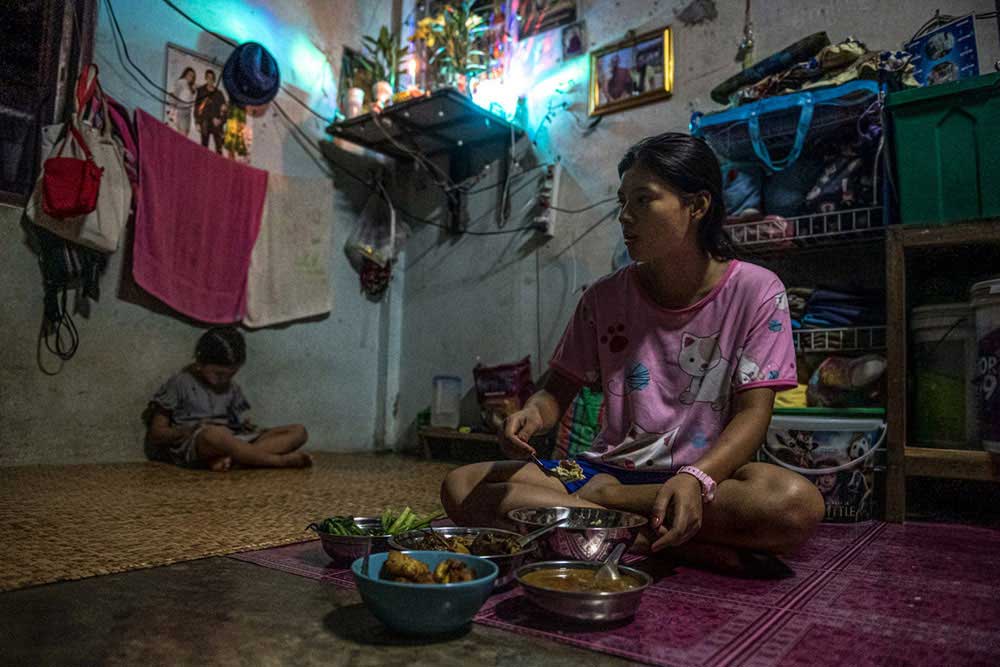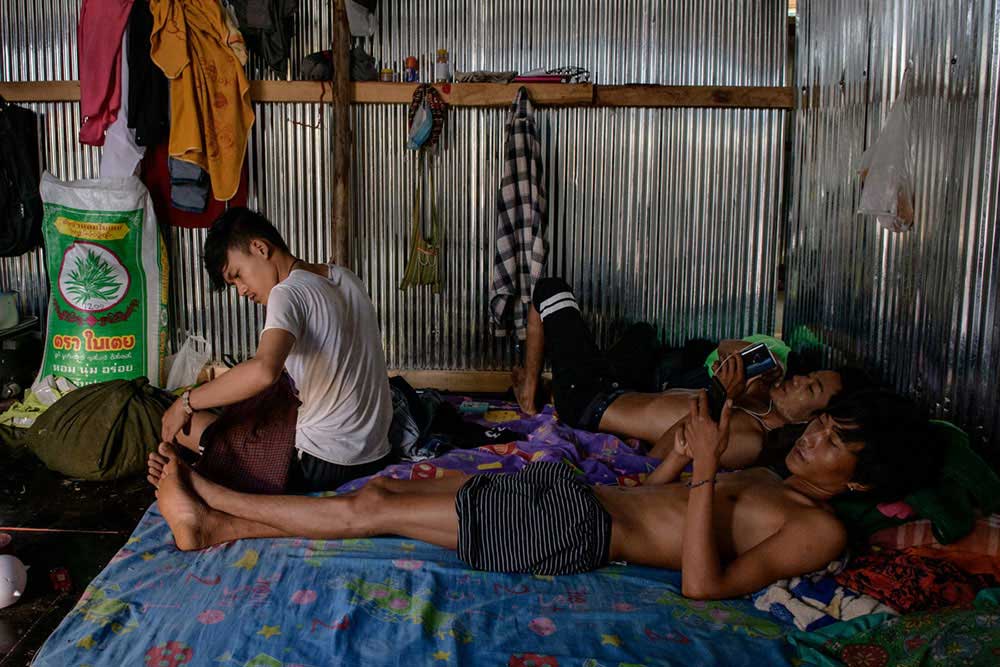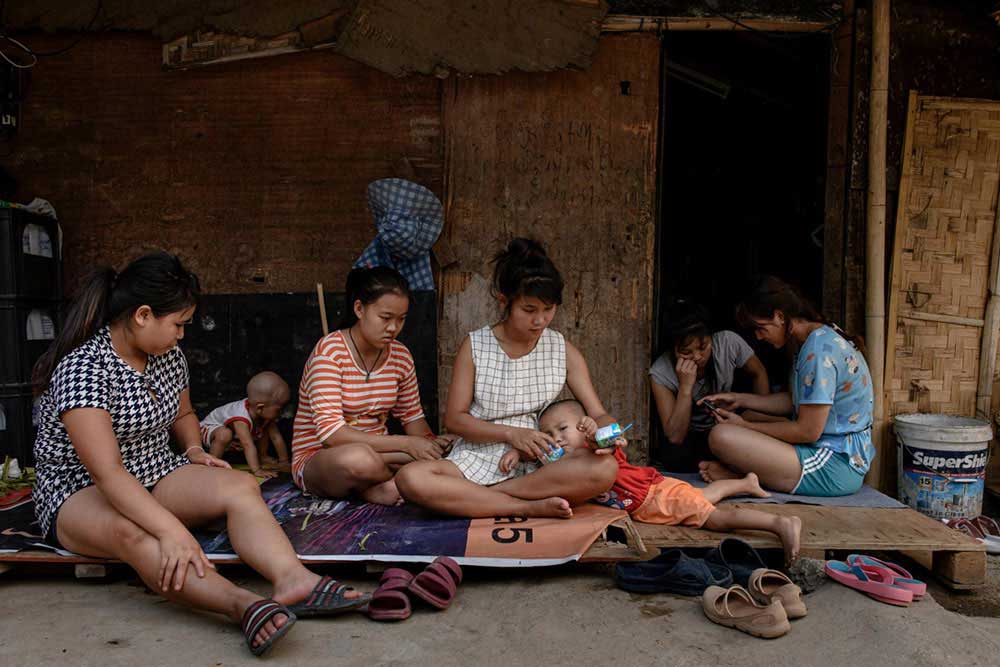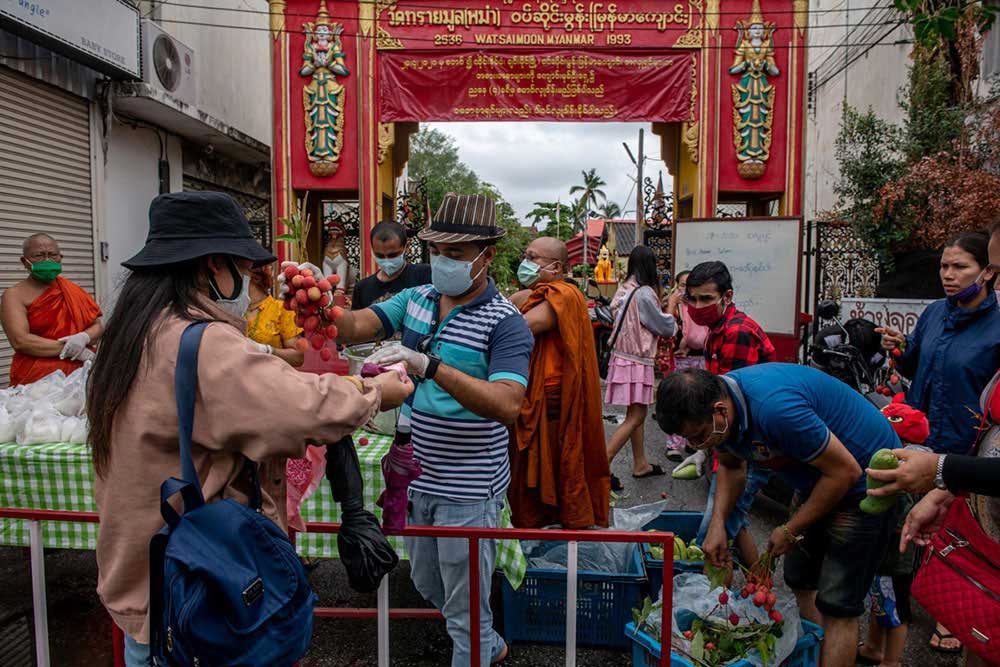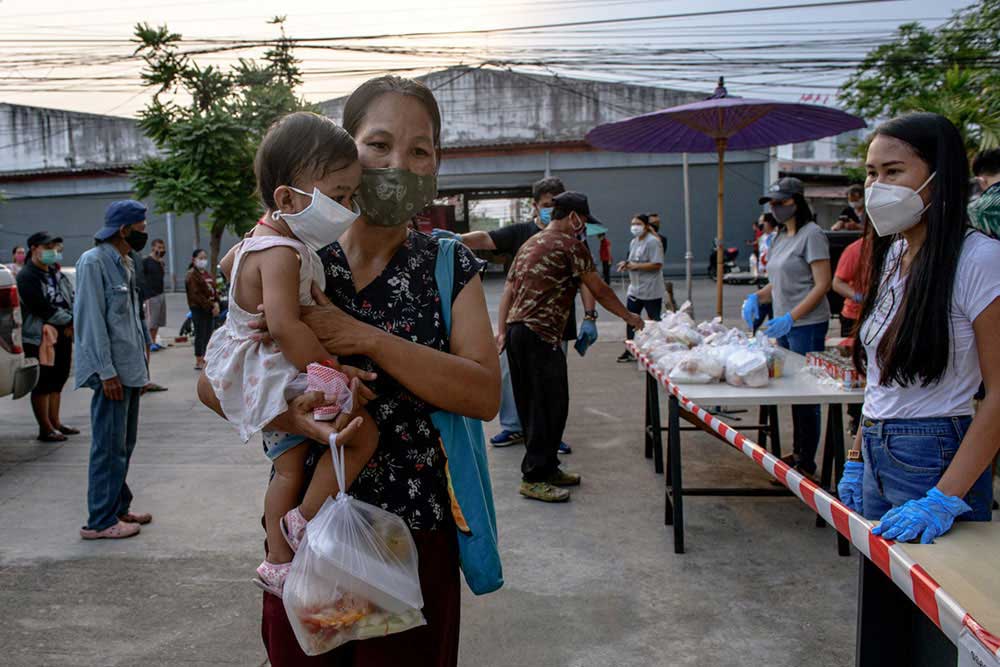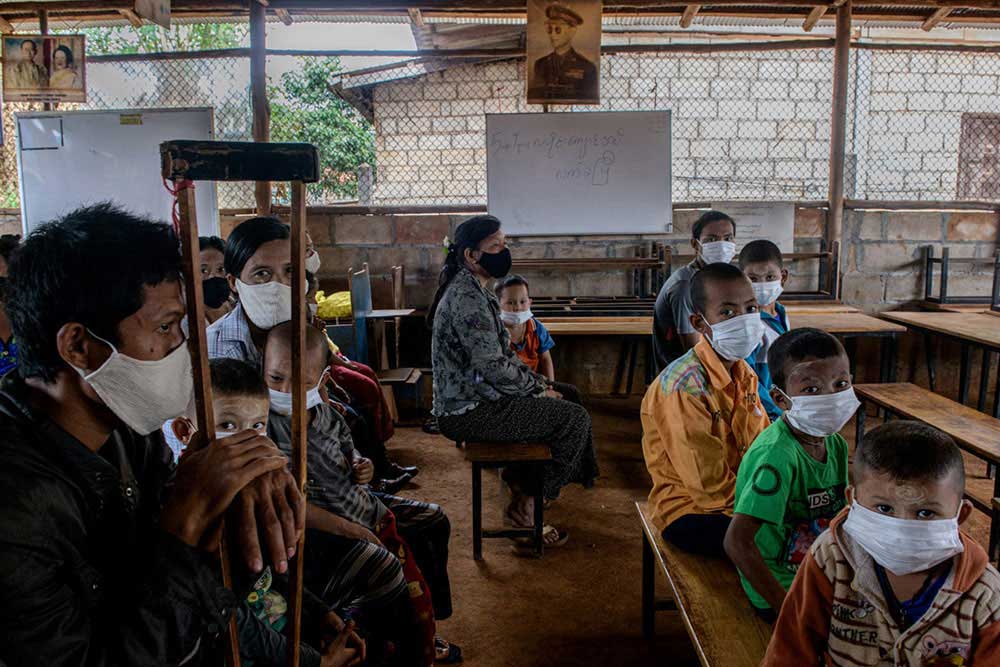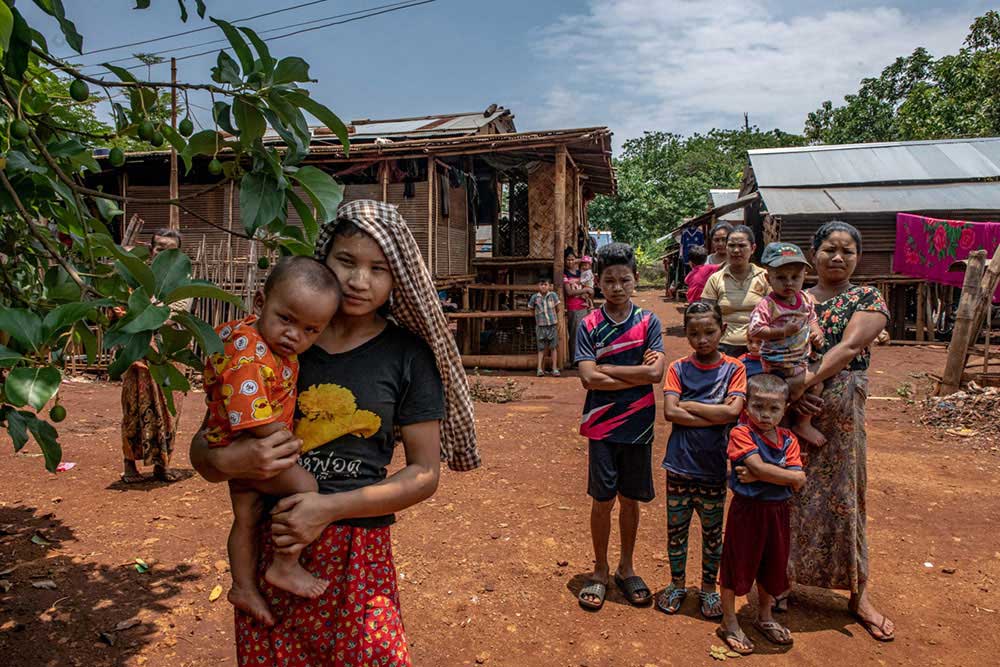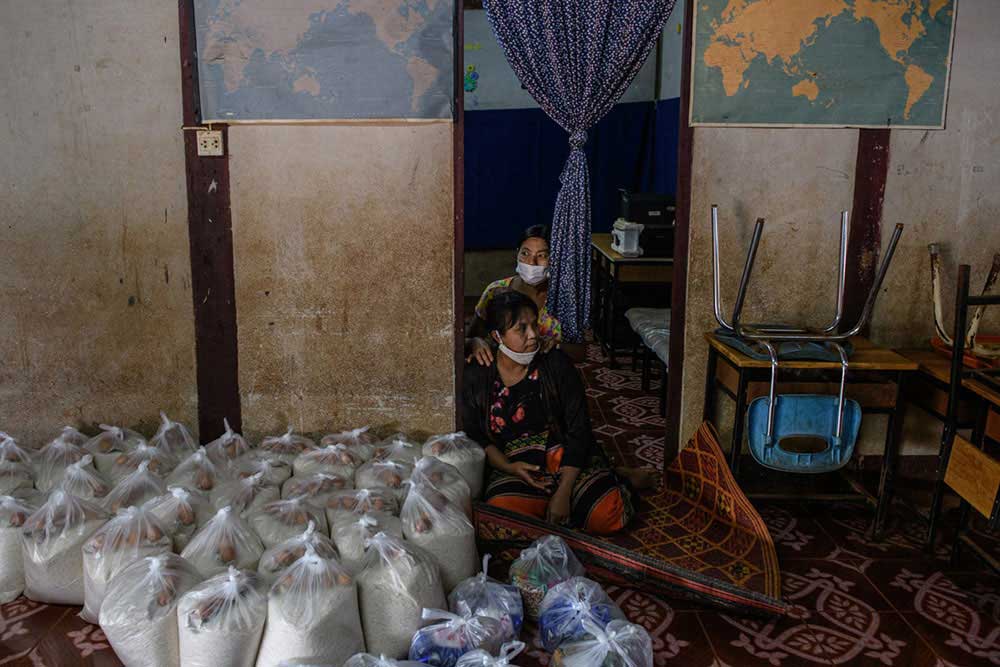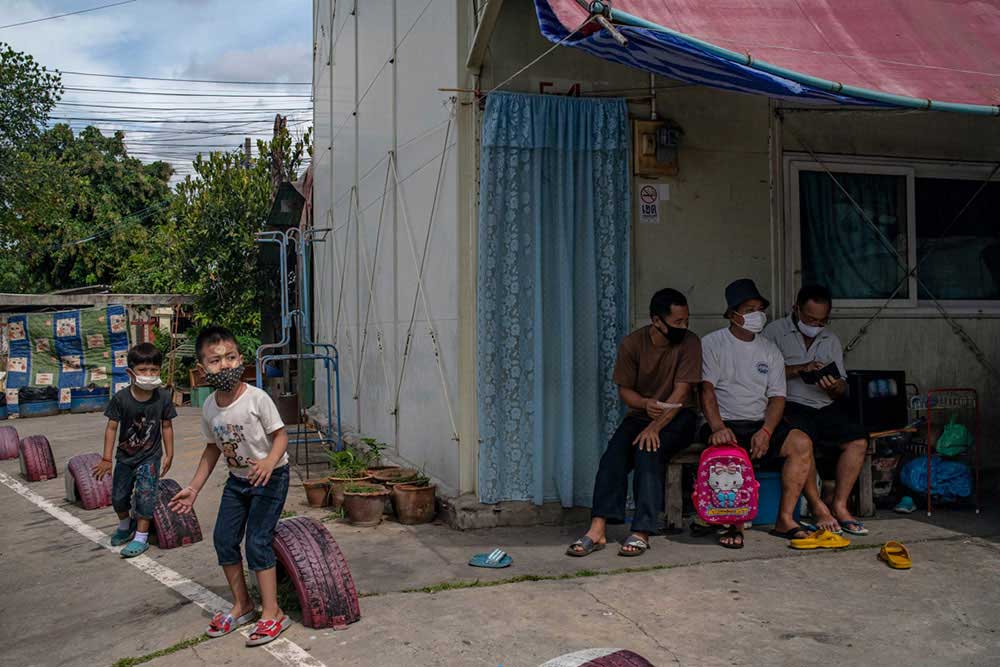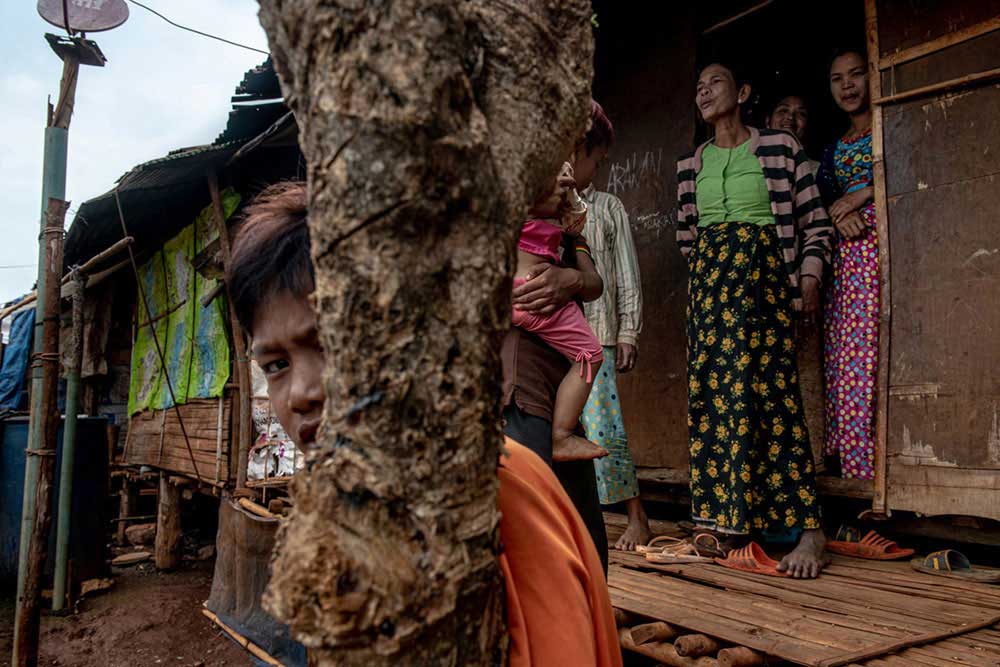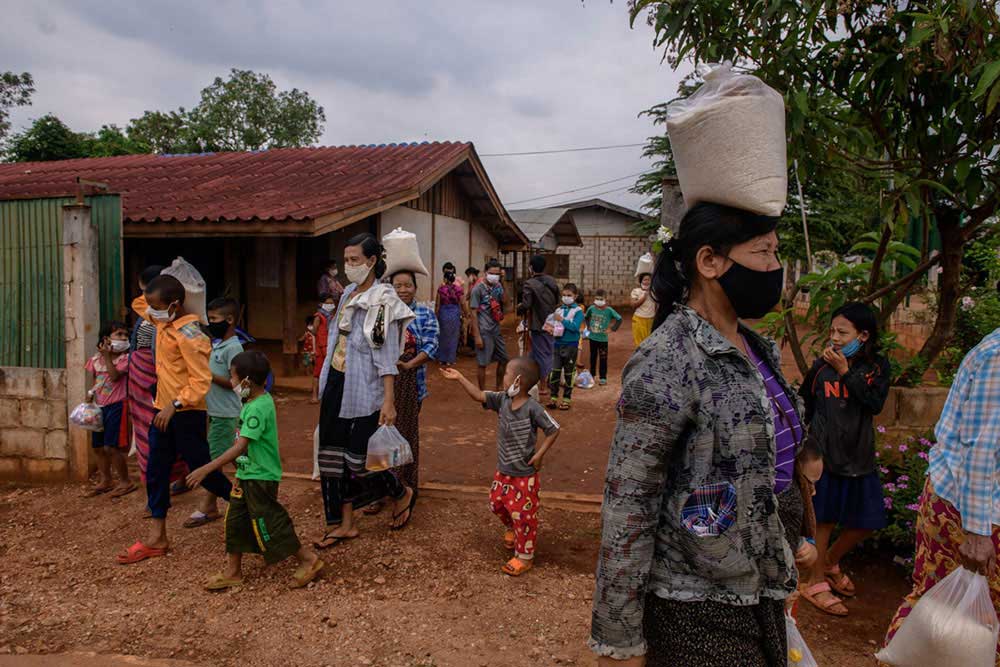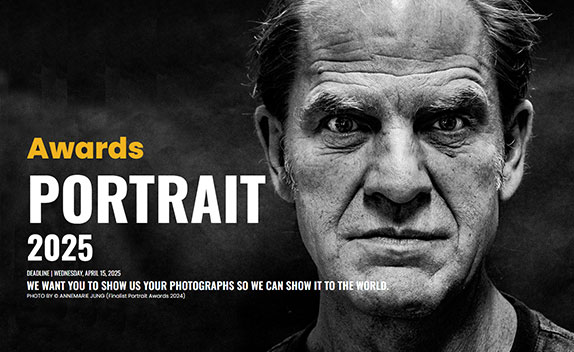Uncertainty and Distress in Myanmar Migrant Workers Behind Thailand Lockdown. They Are Out of Work and left with no Options During COVID-19
With the decline in the Thai and worldwide economy, businesses and factories have closed and migrant workers have been among the first people laid off. As Thailand has entered the worst economic recession in its history, migrants who normally work for daily wages are facing tough times.
After Thailand announced an Emergency Decree to control the outbreak of COVID-19 in late March, the country closed its borders, leaving millions of migrant workers stranded in the country. Some workers were later able to head back across into Myanmar but many are still in
Thailand, trapped without jobs and few options to help them get by. Myanmar migrant workers in northern Thailand are among them. These workers are also faced with the challenge of overcoming local language barriers. Many lack the technical and computer skills to access useful information and guidance or support. They have limited rights to access government social welfare schemes, including those intended to help people through the coronavirus crisis.
The money savings for the use of daily payments have dried up, and a chance to get through this devastating situation seems to be very slim. Many have to illegally stay on expired visas, with no money for the renewal of their documents causing a high chance of getting arrested by Thai police. Their lives are dependent so much upon the uncertainties.
Moreover, migrant workers have to endure living in Thai society under the circumstances Myanmar and other ethnic workers have prejudice, discrimination, and inequality against them. Under this situation, it makes them feel like an outcast and do not dare to share with Thai people for the reason that they do not want to be taken advantage of. During the COVID-19 pandemic, migrant workers have been identified as carriers and blamed for the spreading of the disease.
Along the Thailand-Myanmar border in Tak Province, villages went into lockdown and the crisis forced migrant workers from Myanmar to abandon their farms, becoming largely dependent on food handouts. They said the amount of rice handed out wasn’t enough to feed them, lasting only around three days.
The villagers have come to buy sacks of rice on credit five times already, and it will take at least a year for them to pay back the installments,” said migrant worker Cho Zin Win, 26 years old. In the city of Chiang Mai during the lockdown, it became a common sight to see people, a mixture of local people and migrant workers, lining up for food handouts.
A visit to one of the construction camps in Chiang Mai showed that business closures have forced the wives of construction workers out of their jobs as housekeepers at hotels, while only a few of their husbands have been hired. Some families have less than 1,000 baht left (US$32.08), but they still have to bear the burden of expenses and debts.
Kham Kheng Wong-Ong, 27 years old, is a Shan migrant working as a housekeeper in Chiang Mai. Speaking in tears, she said, “Since my workplace was closed, I don’t have much money left, I don’t know where to find work. I live in a construction camp with my 4-year-old son. My husband is a daily wage construction worker. We don’t even know when he will be laid off. We have to bear the burden of all the expenses such as electricity, school fees, food, and also medicine.”
By July 2020, restrictions on businesses were lifted and most businesses reopened. But with the economic collapse brought by the coronavirus crisis, businesses are still unable to hire back many of their workers. Hundreds of thousands of migrant workers in the country—if not more—are still unemployed and many are unable to adapt to the economy’s “new normal.”
About Jittrapon Kaicome
Jittrapon Kaicome is an independent photojournalist born and raised in Chiang Mai, Thailand. His projects focus on countries in the Mekong region of Southeast Asia. His photographic practice combines with research, journalistic skill, and background by highlighting current affairs, environmental crises related to climate change, and the struggles of marginalized communities including ethnic groups and displaced persons along the Myanmar-Thailand border of the Salween River.
In 2014, Jittrapon started telling stories that happened in his hometown, Chiang Mai during the annual air pollution crisis in Northern Thailand. In the meantime, he started to focus on the importance of underreported issues impacting our lives in his native northern Thailand, and has become the main focus of his attention. Jittrapon has worked with clients and his works have been published in Le Monde, Al Jazeera, The Washington Post, Agence France Presse (AFP), Agencia EFE, National Geographic Thailand among others. [Official Website]


